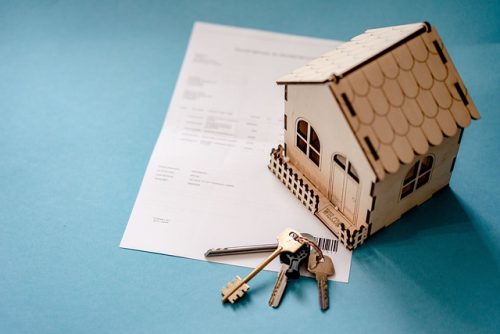by Hope
I hinted at a previous post that there were issues with the sale of the house. Or rather with the mortgage. The sale went like clockwork. Obviously I’m a newbie to selling a house, especially since this was the first one I ever purchased solo. But here’s what happened…

Timeline
April 25th – I requested official payoff statement from mortgage company via phone call. They stated that I would receive it via email the next day, but if I wanted it immediately, it would be loaded in my online portal. I logged in, grabbed it, and sent it to the buyer’s lawyer who was doing the closing. It was good through May 15th.
May 1st – I went in to sign closing docs, they were wrong. The lawyer had left off the closing costs I was paying for buyers.
May 2nd – I went back and signed corrected closing docs and provided account information for wire transfer for proceeds. I left town.
May 8th – Buyers signed and closed. No issues. Lawyer and real estate agent both communicated closing went smoothly.
May 9th – Lawyer wired the proceeds to my account and overnight check to mortgage company.
May 13th – Mortgage company acknowledges receipt of check. But leaves cryptic message on my voicemail to call about my mortgage, ie. “This is XXXX, please call us about your mortgage.” I had driven all day May 12th and into the wee hours of the 13th to get to Texas. I slept most of the day and was not really functional when I was awake.
May 14th – I called mortgage company back. Agent said lawyer sent the wrong amount for mortgage payoff. It was a LONG call just to get that information. No other details shared. I called lawyer to check and I had them send me the tracking information and stub of the check. The amount they sent matched what the payoff showed.
At this point, I assumed clerical error and left it.
May 16th or early the next week – Automated message from mortgage company that my payment is late and to log on to my portal and pay. I called mortgage company back. Different agent – “oh, the day after you pulled the payoff statement, we paid your homeowner’s insurance, which put your escrow in the negative. The difference between the payoff and what you negative escrow balance is $475ish.”
Me: “But why does it show I owe $1,900ish in the portal?”
Agent: “Let me escalate and have a supervisor call you back.”
Back and forth, back and forth – 9 calls and a week later.
Mortgage company did not apply the check they had received on May 13th (before pay off date) and continued to charge me interest on entirety of loan.
Lack of Clear Communication/False Information on Every Call
From mortgage supervisors:
- We left message with lawyer.
- We sent the check back.
- It’s our policy…
- Now you owe $900.
- We will pull recorded calls to confirm.
- No, we didn’t leave message with lawyer.
- We hold the check for 30 days.
- Now you owe $1,700.
- In small print on the official payoff statement, there’s a statement that says to call to verify the amount is correct.
May 23rd – New payoff issued. Good til May 28th. I called lawyer because mortgage company said they had sent check back per their policy since it wasn’t the full pay off amount. And I had to have it back by 25th. And then pay an extra $789.37. It was a holiday weekend.
May 24th – I heard back from the lawyer. They did not have the check. They called mortgage company who told them, their policy is to hold the check for 30 days. Completely different then what they had told me.
May 25th – I logged on to portal and despite it showing I owed $1,700+ at this time, paid the $789.37. Called mortgage company again, another different supervisor…”ok, we will send the check back.” NO! Cash the check, close this mortgage. He then said he would do some research and either he or a previously spoken to supervisor would call me back by end of the day.
Finally, at the end of the day, a supervisor called me back and said “oh, we do have the check” – the same one who had insisted a week before that it had been sent back. “You just need to pay…” “I already did.” “Oh, yeah, I see that, ok, I’ll email XXX and say the mortgage is paid off.”
The next day…voicemail from mortgage company saying my payment is late and that I need to log on to the portal and make a payment. OMG!
Two days later…your account is paid and closed. Finally!
Never Again
Essentially, this ended up costing a little over $300 more than I should have had to pay. My dad who was witnessing all this happening wanted me to get a lawyer involved and not pay more. And I don’t think I should have had too. It truly wasn’t my fault. But I wanted it done! So I just paid and let it go.
But I have since spoken to not only my buyer’s lawyer, but also our family lawyer, and a number of other people involved in real estate and they are all flabbergasted at how this went down. The lack of clarity and clear communication from my mortgage company. The mis-information…9 phone calls and I got different information on EVERY SINGLE CALL. The lack of accountability. They insisted they sent the check back, they left a message with the lawyer, and so much more…
Now, I acknowledge, that if the lawyer or I had called per the small print on the payoff statement, this would have all been avoided. But the lawyer who is a real estate lawyer says they have NEVER had this happen or needed to call when it was an official payoff statement. Hindsight is 20/20.
But let’s just say that everyone who has witnessed all this has determined never to do business with this mortgage company again.

Hope is a resourceful and solutions-driven business manager who has spent nearly two decades helping clients streamline their operations and grow their businesses through project management, digital marketing, and tech expertise. Recently transitioning from her role as a single mom of five foster/adoptive children to an empty nester, Hope is navigating the emotional and practical challenges of redefining her life while maintaining her determination to regain financial control and eliminate debt.
Living in a cozy small town in northeast Georgia with her three dogs, Hope cherishes the serenity of the mountains over the bustle of the beach. Though her kids are now finding their footing in the world—pursuing education, careers, and independence—she remains deeply committed to supporting them in this next chapter, even as she faces the bittersweet tug of letting go.
Since joining the Blogging Away Debt community in 2015, Hope has candidly shared her journey of financial ups and downs. Now, with a renewed focus and a clear path ahead, she’s ready to tackle her finances with the same passion and perseverance that she’s brought to her life and career. Through her writing, she continues to inspire others to confront their own financial challenges and strive for a brighter future.




